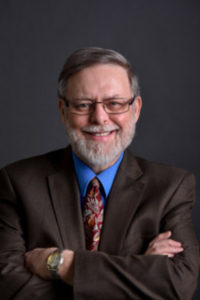
Using Natural Theology in Preaching
Natural theology has fallen on hard times in modernity. Since Kant, most theologians have implicitly acquiesced to his dismissal of it whether they are consciously aware of doing so or not. Some read Kant but by far the vast majority simply absorb his conclusions as “common sense” and “what everyone knows.” Have they evaluated Kant’s arguments against the classical proofs for the existence of God? Probably not. Have they considered the implications of Hume’s denial of the principle of causality that is the basis of the arguments Hume made against classical metaphysics and which Kant accepted? Again, likely not. But they operate on the assumption that Kant must have been right because no one, to their knowledge, is challenging Kant and refuting his views.
Thus, natural theology today is not so much refuted as it is ignored. But those who ignore it should be aware of the fact that nature does not go away just because a human culture chooses to pretend it is not there. The traditional Aristotelian proofs for the existence of God are valid today just as they always were and always will be.Nature does not go away just because a human culture chooses to pretend it is not there. Click To Tweet
In this short article, however, I do not intend to argue for the validity of the proofs or for the truth of natural theology. I will do that in other venues. But here I want to demonstrate the usefulness of natural theology and how relevant it can be in preaching. Perhaps if I can show what we are missing by ignoring natural theology then some may be persuaded to re-examine the proofs for God’s existence with an open mind.
In the following section, I reproduce a brief wedding homily I gave recently at my son’s wedding. It is very compressed and could easily be expanded into a full-length sermon. The heart of it is the idea that self-denying love in marriage takes us into the deep reality of the cosmos because it is the meaning of creation. Natural analogies to the fruitfulness of dying to self are noted and the harmony between what God reveals in His Word and what we learn by observing nature is pointed out. In the final section of this article, I will draw out some lessons for how natural theology can enhance preaching.
A Wedding Homily on 1 Corinthians 13
In 1 Corinthians 13, we read the greatest definition of love ever written. Here Paul the inspired apostle writes to a church in the city of Corinth that was characterized by division, self-seeking, sensuality, ambition, competition, and pride. The Corinthians were newly converted pagans still filled with the mindset of the Greco-Roman world. They admired and valued strength, power, domination of the weak by the strong, and imposing one’s will on others. Women were seen as property. Slavery was foundational to the economy. Justice was defined as what the militarily powerful said it was going to be.
Into this situation came the Christian gospel. Here was a completely different message.
- Instead of power, it was about humility.
- Instead of domination, it was about service.
- Instead of self-seeking, it was about self-denial.
Frankly, the pagans of Corinth thought the Christians were absolutely crazy. At the heart of the whole religion was the weekly worship of a crucified man who had been executed about 20 years earlier by the Roman authorities.
But Christians believed that this man – Jesus – was God himself come to earth to offer himself as a sacrifice for the sins of the human race. Christians saw in his death not a tragedy or a martyrdom, but a great victory over self-seeking, power struggles and prideful self-assertion.When God created the world, he created it in such a way that if one looks carefully at it one can see the resurrection of Christ pictured everywhere. Click To Tweet
The doctrine of the resurrection made all the difference. Jesus did not stay dead. He rose again. And that proved the ultimate cosmic triumph of life over death.
When God created the world, he created it in such a way that if one looks carefully at it one can see the resurrection of Christ pictured everywhere.
This is a basic reason why Jesus appealed to nature so often in the stories he told that we call parables. The seed falls into the ground and dies in order to grow and flourish.
We see a picture of resurrection in marriage as well. One thing the pagan Greeks and Romans could not understand was the willingness of Christians to die for their faith. But death was not seen as the end, but as a beginning. Christian faith is resurrection faith.
So, when Paul insists in 1 Cor 13 that “Love does not envy or boast” and “It does not insist on its own way” he is talking about a kind of death to self. We die to our own desires and our own priorities and our own preferences.
But surprise! This death is not the end but the beginning of a beautiful and fruitful life. Resurrection is built into the very fabric of the universe and can never be eradicated no matter how much we sin or disbelieve.
Love is finding new life through dying to self. That is the message of 1 Corinthians 13. And there is a very good reason we read it at weddings.
- It contains the secret to a happy marriage.
- It contains the secret to a loving family.
- It contains the secret to a good life.
You might believe in Jesus and the resurrection, or you might not. But every time you die a little bit to yourself and put the other first, you are acting in accordance with the way God made the world and the way God made you.
This is why the resurrection of Jesus Christ is the center of history. I charge you to make it the center of your marriage.
Comments
The first point to note is that nature is understood in this homily to be sacramental. It is not just molecules interacting randomly, but a beautifully designed cosmos created by God to reveal his glory. God reveals himself in nature.
The second point to note is that the death and resurrection of Christ is the key that unlocks the mysteries of life. It is not just an arbitrary or tragic event, but the center of history and a picture of the nature of God. In that sense, then, the death and resurrection of Jesus Christ reveals the nature of the God who is the Creator. Nature’s Creator is further revealed in greater detail by the Incarnate Son.Nature’s Creator is further revealed in greater detail by the Incarnate Son. Click To Tweet
The third point to note is that the Incarnation of Christ although the cross and resurrection do not contradict the revelation of the Creator in nature, they constitute a further and deeper revelation of God. The point is that the same God is revealed in nature and grace and that revelation in Christ enhances and deepens without contradicting the revelation in nature.
The fourth point to note is that marriage itself is structured by the Creator to be a further revelation of the nature of the Creator and the meaning of creation. In the context of self-denying love, we find new life, fruitfulness, and great joy. This reveals the goodness of God and the intention of God to make his human creatures supremely happy. All happily married people ought to recognize that the way God has made the cosmos is good because God is good. And so, marriage ought to direct our worship and thankfulness toward the Creator.
The fifth point to note is that although marriage is good it also can be hard because of the fallenness of the creation and the corruption of human nature. Therefore, forgiveness and longsuffering are needed for a successful marriage. This reality, which is so intimately presented to us that we cannot possibly ignore it, should drive us to the grace proclaimed in the cross and resurrection of Christ.
The sixth point to note is that even if we deny God and refuse to give thanks to him, we nevertheless find that in order to live harmoniously with a husband or wife it is necessary to practice self-denial, forbearance, and forgiveness. In short, we must live the gospel even if we profess not to believe it! Nature itself drives us to God and to his grace. The self-denial, forbearance, and forgiveness we see etched into the cross of Calvary resonates with our experience of marriage as truth. To reject his grace while needing it every day from one’s husband or wife seems wildly inconsistent. In this sense, marriage can be and often is a means of grace.
Conclusion
The value of preaching in such a way as to bring out the relationship between natural theology and natural law, on the one hand, and the gospel of Jesus Christ, on the other, is that it strikes a blow against the Gnosticism that haunts the modern world. Since Darwin, it has been extremely difficult for people to see God in nature or to experience creation as delightful. Instead, we think of nature as “red in tooth and claw” (Tennyson).
But creation is good, despite the fall, and surely there is no better time than a wedding ceremony to draw out this truth and set it on the lampstand once again. People intuit that marriage is good and that love is the highest thing in the universe. Preaching can appeal to that intuition and use it to direct our attention to the Creator God of Scripture.

